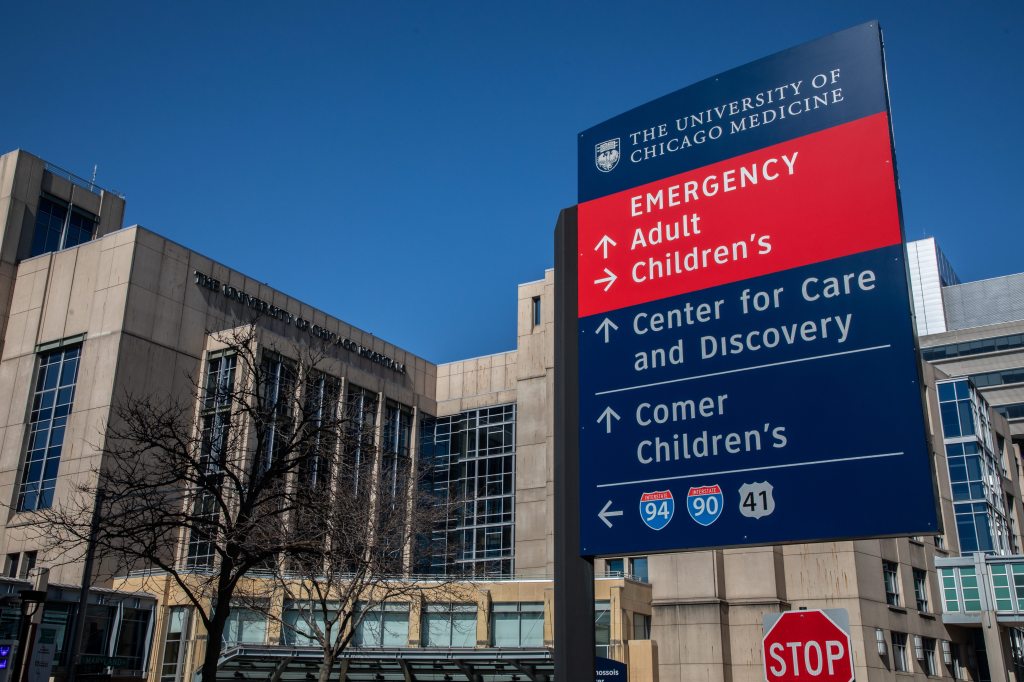Representing Chicago’s West Side in the Illinois House of Representatives, I’ve seen firsthand how access to health care can be incredibly fragile for low-income families.
Many of my constituents live in communities where hospitals have closed, clinics are underfunded and patients are forced to travel miles just to see a doctor.
That’s exactly why Congress created the federal 340B Drug Pricing Program in 1992. The idea was to give hospitals that serve large numbers of low-income patients drugs at significant discounts, often 25% to 50% below market price, while still getting each drugs’ full reimbursement rate from insurance. They were supposed to invest the difference in price into free clinics, charity care and community health programs in the underserved areas they serve.
Unfortunately, hospitals in Illinois are seriously abusing the 340B program. Some of our largest and wealthiest hospital systems are reaping millions of dollars from marking up discounted drugs meant for our underserved patients and funneling those profits into high-end suburban facilities, where they charge wealthy, fully insured patients full price and pocket the profit. This intentional exploitation of the program leaves the very communities the program was designed to help even further behind.
And yet, today, despite this far-from-stellar track record, hospital lobbyists have the audacity to be pressuring lawmakers in Springfield to expand 340B and are even asking them to remove transparency safeguards on the program. They paint this effort as a fight for patients. But to truly fight for patients, we must take an honest look at how the system is being abused today. Illinois hospitals are siphoning dollars away from poor communities to build cancer clinics and infusion centers in some of the wealthiest ZIP codes in the state.
The University of Chicago Medical Center is a classic example of how the game is played. Situated in one of the poorest areas of the city, the hospital serves the 340B population due to the high poverty rates in the surrounding community. I believe that rather than reinvesting 340B dollars into services for South Side residents, UChicago Medicine began opening clinics in affluent suburbs such as Hinsdale and Northbrook, where the median household income is nearly triple that of neighborhoods around its parent hospital.
In 2025 alone, UChicago Medicine opened multiple infusion sites in high-income communities such as Orland Park, River East in Chicago and Northbrook. Meanwhile, even as its revenue has skyrocketed from $2.55 billion in 2020 to $4.63 billion in 2024, its charity care spending has plummeted below the national nonprofit hospital average.
It’s not just the University of Chicago Medical Center. The same story plays out at Rush University Medical Center. Hospital officials told Moody’s that they expect to see their profits continue to rise from 340B drug discounts as their cancer business expands. Like UChicago Medicine, Rush has placed outpatient clinics in Oak Park and other suburbs such as Aurora and Yorkville.
My constituents were the very people this program was supposed to help. They are being exploited by a health care system that fails to serve them and uses their suffering as a justification to extract federal dollars for little in return.
We should not and cannot allow corporations to continue gaming the system. Before the General Assembly even thinks about expanding 340B, lawmakers — both in Congress and Springfield — must make sure 340B dollars are being spent on the underserved.
They must demand transparency on where hospital 340B revenues are going, require hospitals to reinvest profits in the communities that qualify them for the program, and end the abusive practice of linking South and West Side hospitals to suburban luxury clinics.
It’s what’s fair and just, and it’s the only sustainable path forward.
Rep. La Shawn K. Ford, D-Chicago, represents Illinois’ 8th House District.
Submit a letter, of no more than 400 words, to the editor here or email letters@chicagotribune.com.

